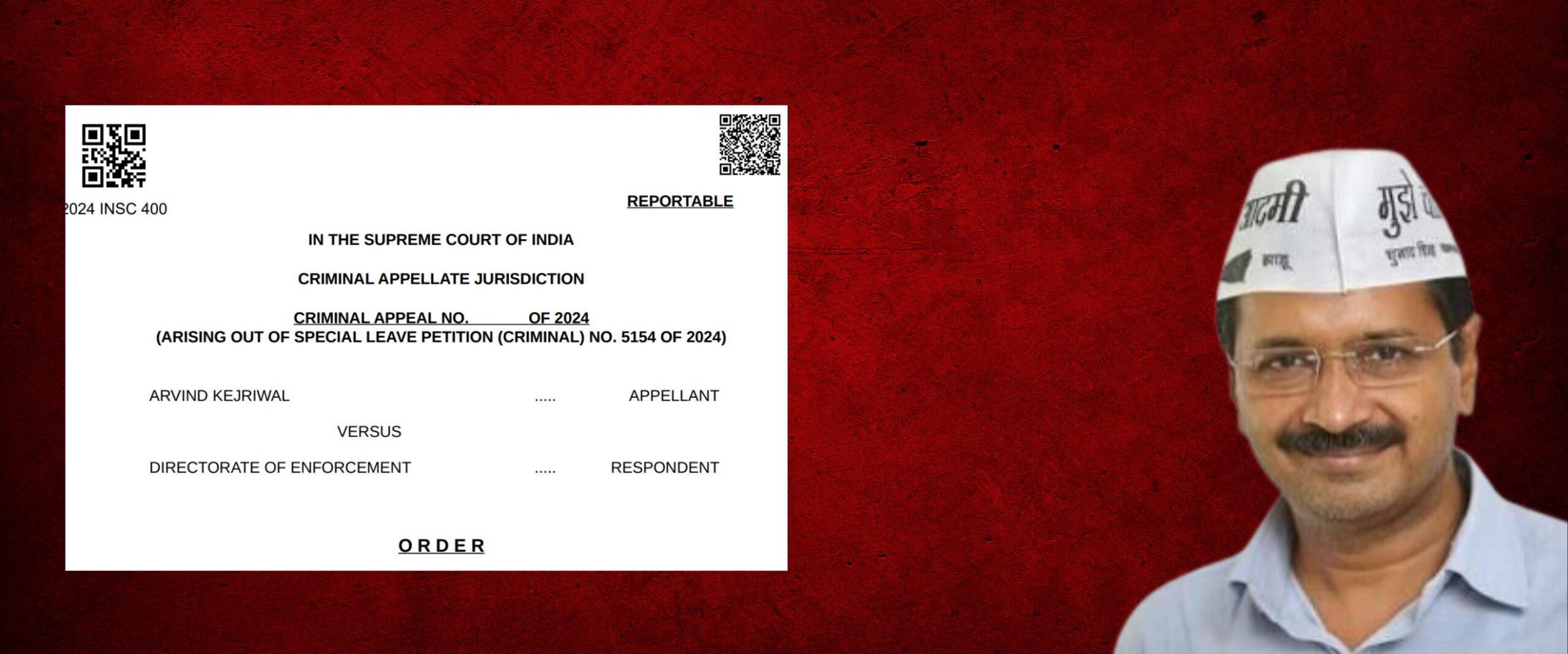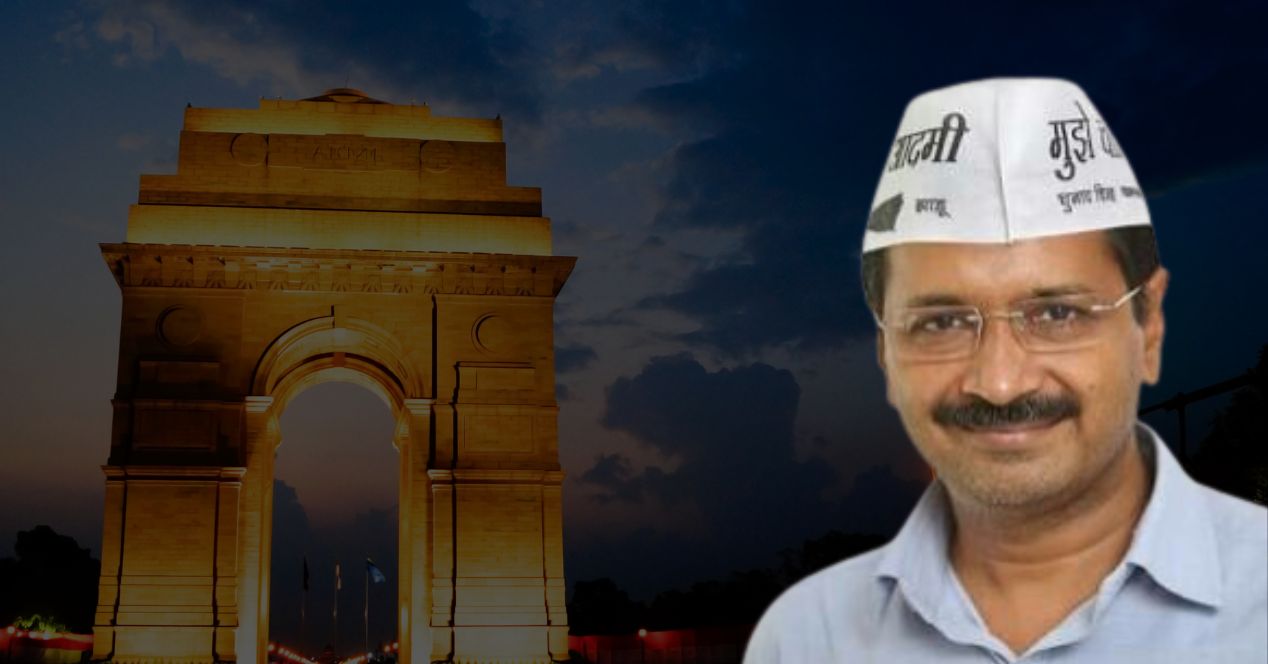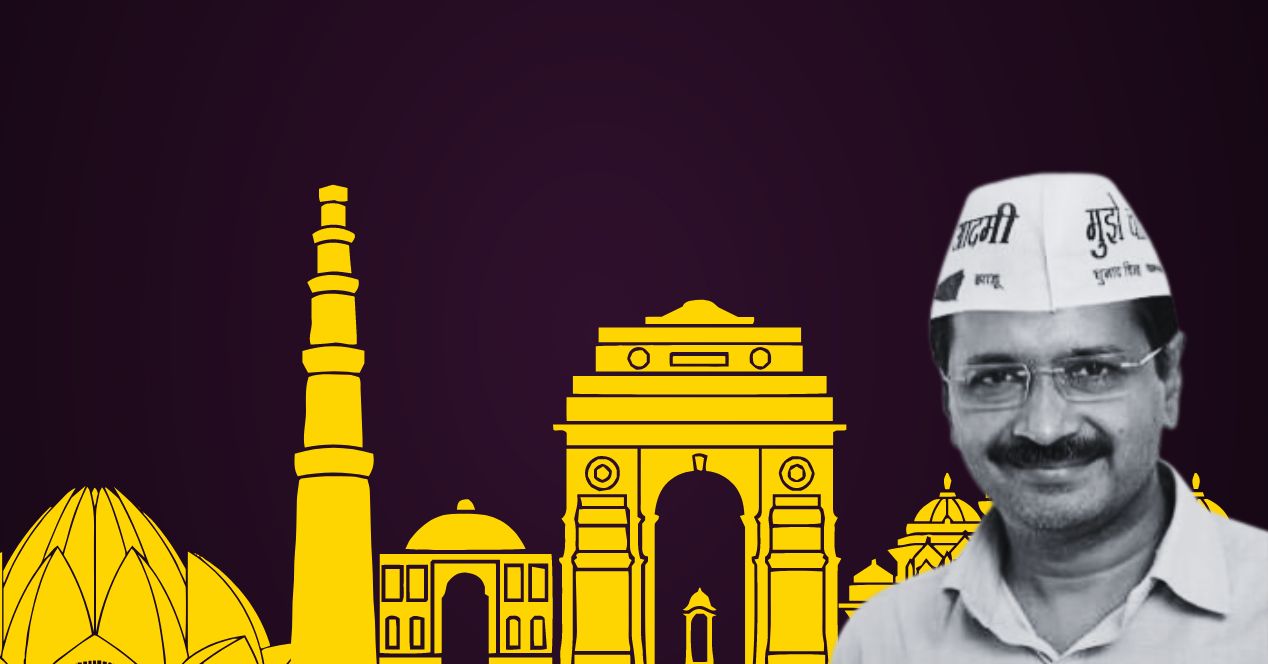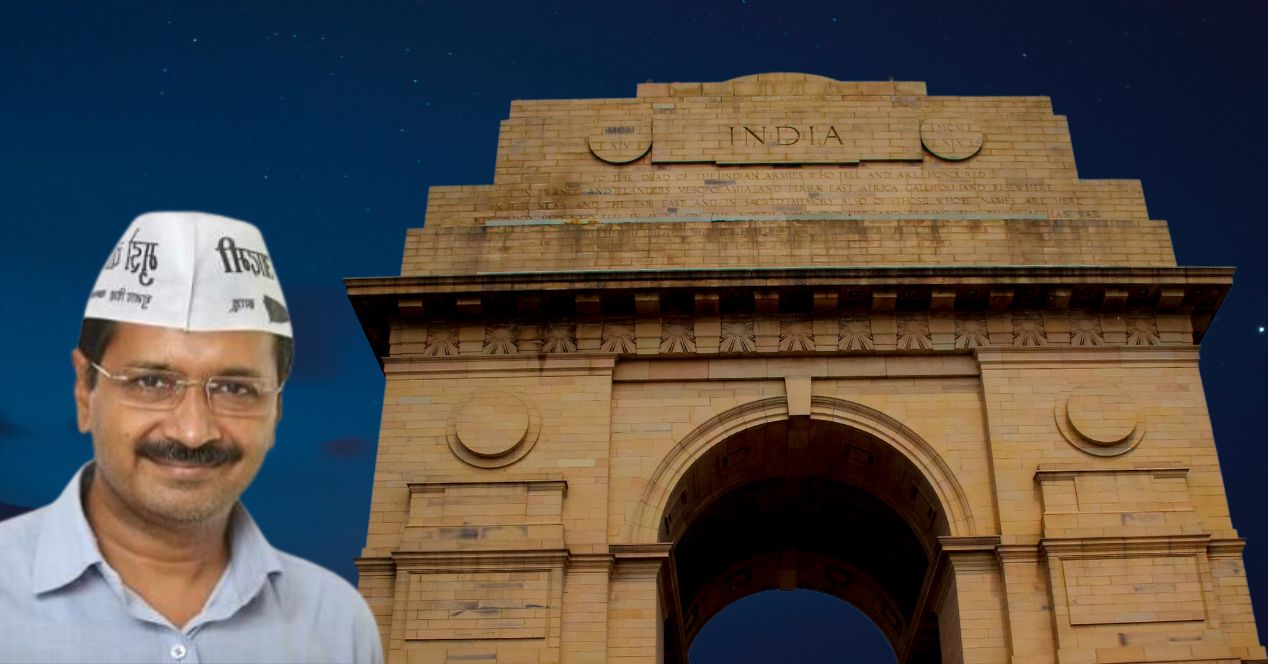Analysis
What are the interim bail conditions for Chief Minister Arvind Kejriwal?
The Supreme Court observed that Kejriwal was not a threat to society as he had no criminal antecedents

Today, the Supreme Court granted interim bail to Delhi Chief Minister Arvind Kejriwal 1.5 months after his arrest. He was arrested by the Enforcement Directorate (ED) on 21 March 2024, five days after the Lok Sabha Elections were announced in the country, for his alleged involvement in the Delhi Liquor Policy case.
The Bench comprising Justices Sanjiv Khanna and Dipankar Datta held that the interim bail period would last till 1 June 2024.
Read the detailed order here.
Kejriwal not a “threat to society”
The Order stated that Kejriwal was granted interim bail due to the “intervening factor” of the 18th Lok Sabha Elections. The Bench wrote that it was not possible to conclude hearings concerning the legality of his arrest before the impending polls. The Bench cast aside the ED’s arguments suggesting favourable treatment for Kejriwal stating that “courts always take into consideration the peculiarities associated with the person in question.” Here the ‘peculiarity’ was the 2024 Lok Sabha Elections.
The Order clarified that though the allegations against Kerjriwal were of a serious nature, he neither had “criminal antecedents” nor is he a “threat to society” to discourage the Court from granting interim bail.
Further, the Bench noted that the investigation in the Delhi Liquor Policy was ongoing since August 2022. Kejriwal was arrested in March 2024—1.5 years later. As arguments challenging the legality of his arrest are still ongoing, a “more holistic and libertarian view” was justified in considering bail, the Order noted.
Kejriwal cannot be in office during interim bail period
The Court directed Kejriwal to surrender himself back to judicial custody on 2 June 2024. This will be two days prior to the results of the Lok Sabha Elections, due to be announced on 4 June. The Court imposed the following conditions on Kejriwal:
- A bail bond amount of ₹50,000/- with a surety of the same amount.
- Kejriwal cannot visit the office of the Delhi Chief Minister and the Delhi Secretariat
- He cannot sign any official files unless it is necessary for obtaining the clearance or approval of the Lieutenant Governor of Delhi
- He may not make any comments on the Delhi Liquor Policy case for which Kejriwal was arrested
- Kejriwal is also barred from interacting with witnesses and accessing official files connected with the case




